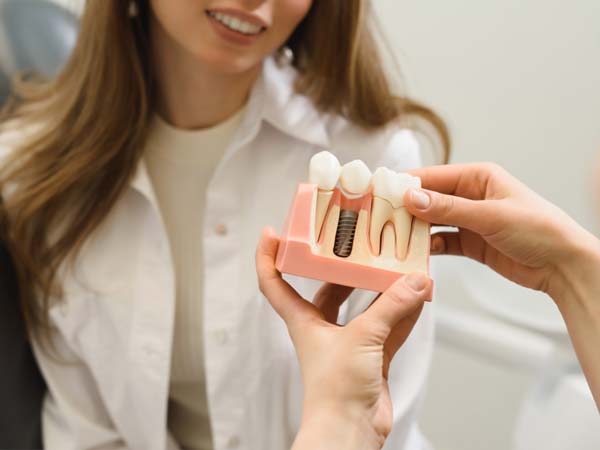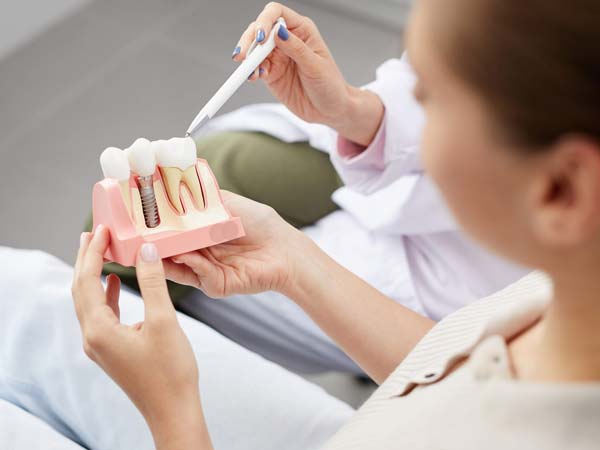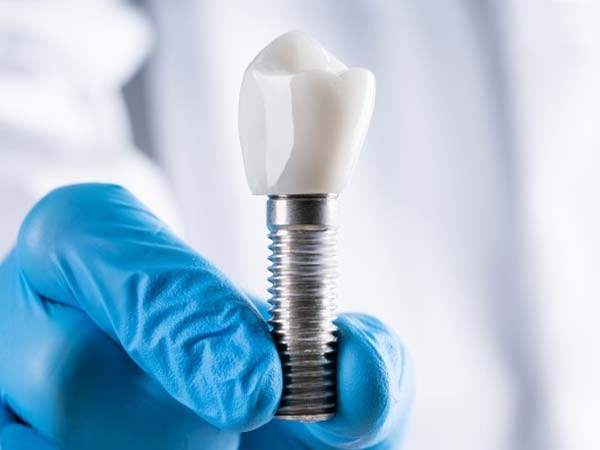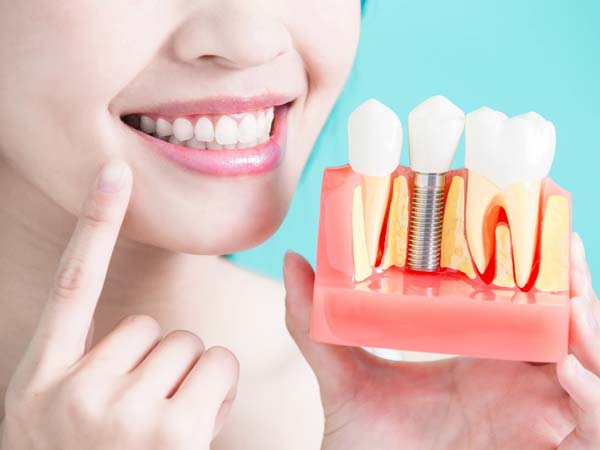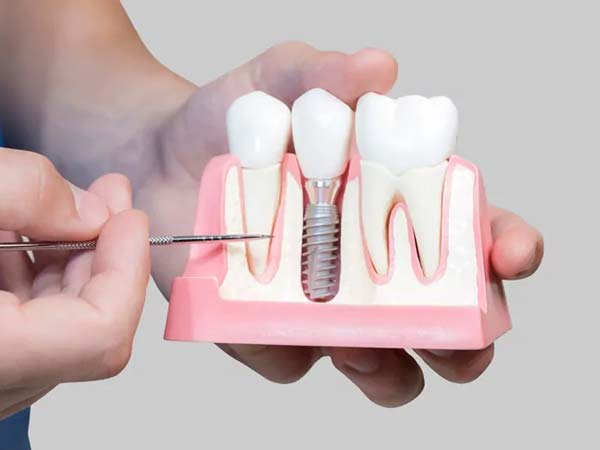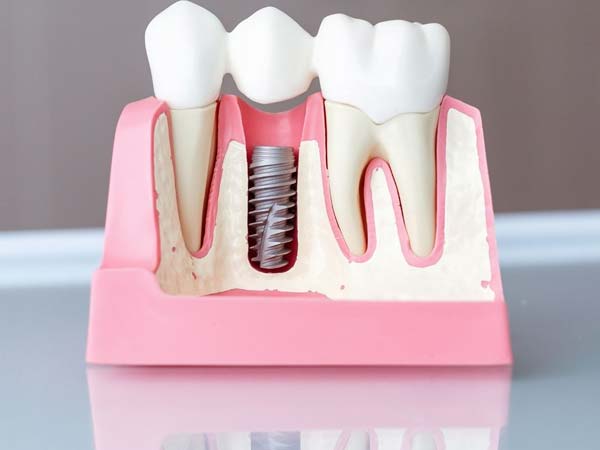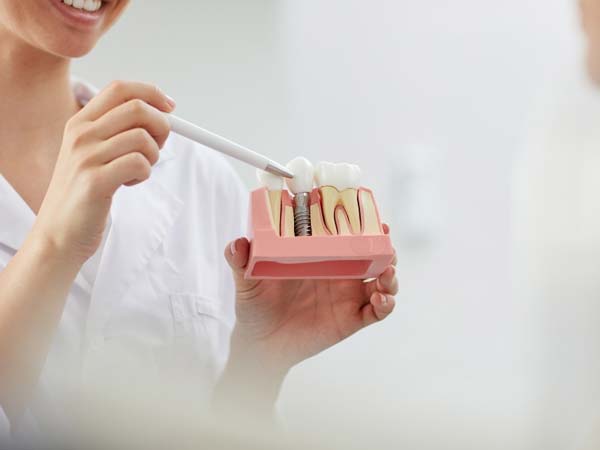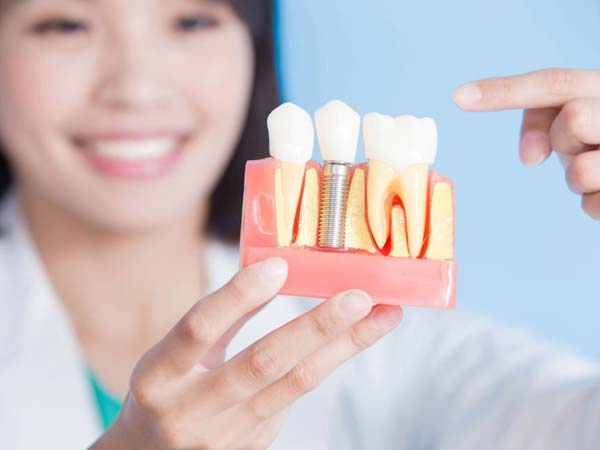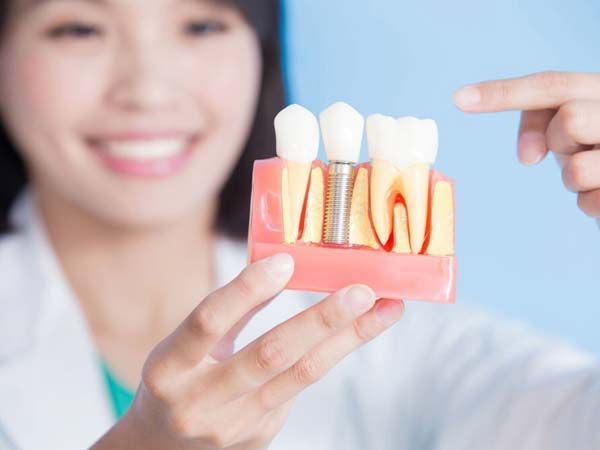
Dental Implants: Restoring Your Smile and Confidence
Dental implants have revolutionized the field of restorative dentistry, offering a reliable and long-lasting solution for replacing missing teeth. Whether you have lost a tooth due to injury, decay, or other reasons, dental implants provide a natural-looking and functional replacement that can restore your smile and boost your confidence. Let’s explore what dental implants are, how they work, and their numerous benefits.
What Are Dental Implants?
Dental implants are artificial tooth roots made of biocompatible materials, typically titanium. They are surgically placed into the jawbone to provide a sturdy foundation for prosthetic teeth. Once the implant fuses with the surrounding bone through a process called osseointegration, it becomes a permanent and secure anchor for the replacement tooth or teeth.
The Dental Implant Procedure:
- Initial Consultation: The dental implant process begins with an initial consultation. During this visit, the dentist will evaluate your oral health, take necessary dental imaging, and discuss your treatment goals.
- Implant Placement: The next step is the surgical placement of the dental implant. This procedure is typically performed under local anesthesia or conscious sedation to ensure your comfort. The dentist will make a small incision in the gum tissue to access the jawbone and carefully insert the implant.
- Osseointegration: After implant placement, a healing period of several weeks to a few months is required for osseointegration to occur. During this time, the implant integrates with the surrounding bone, creating a strong and stable foundation.
- Abutment Placement: Once osseointegration is complete, a connector called an abutment is attached to the implant. The abutment acts as a link between the implant and the prosthetic tooth.
- Prosthetic Restoration: Finally, a custom-made dental crown, bridge, or denture is securely attached to the abutment, completing the dental implant restoration. The prosthetic tooth or teeth are designed to match the color, shape, and size of your natural teeth, providing a seamless and aesthetically pleasing result.
Benefits of Dental Implants:
- Improved Appearance: Dental implants look and feel like natural teeth, enhancing your smile’s appearance and restoring facial aesthetics. They blend seamlessly with your existing teeth, giving you the confidence to smile, speak, and eat without hesitation.
- Enhanced Functionality: Unlike removable dentures, dental implants provide optimal biting and chewing capabilities. They are securely anchored in the jawbone, allowing you to enjoy a wide range of foods and speak clearly without worrying about your teeth shifting or slipping.
- Durability and Longevity: With proper care and maintenance, dental implants can last a lifetime. They are highly durable and resistant to decay, offering a long-term solution for tooth replacement.
- Preservation of Jawbone Health: When a tooth is lost, the underlying jawbone can deteriorate over time. Dental implants stimulate bone growth and prevent bone loss, preserving the integrity and strength of the jawbone.
- Convenience and Comfort: Unlike removable dentures, dental implants eliminate the need for messy adhesives and special cleaning routines. They become a permanent part of your mouth, providing convenience and comfort in your daily life.
Consultation with an Implant Specialist:
If you are considering dental implants, it is essential to consult with a skilled implant specialist or prosthodontist. They will evaluate your oral health, discuss your treatment options, and create a personalized plan tailored to your specific needs and goals.
Conclusion:
Dental implants are a remarkable solution for replacing missing teeth and restoring your smile’s functionality and aesthetics. With their natural appearance, durability, and ability to improve oral health, dental implants offer a life-changing opportunity for individuals seeking a permanent tooth replacement option.
FAQs (Frequently Asked Questions)
- Are dental implants painful? The dental implant procedure is typically performed under local anesthesia, ensuring that you experience little to no pain during the process. Some discomfort or mild soreness may occur after the surgery, but it can be managed with prescribed pain medications.
- How long does the dental implant process take? The dental implant process can take several months to complete, including the healing period for osseointegration. The exact timeline varies for each individual based on factors such as the number of implants, bone quality, and overall oral health.
- Am I a suitable candidate for dental implants? In general, most healthy individuals with adequate jawbone density can be considered candidates for dental implants. However, a thorough evaluation by an implant specialist is necessary to determine your eligibility and develop a personalized treatment plan.
- How do I care for dental implants? Caring for dental implants is similar to caring for natural teeth. It involves regular brushing, flossing, and routine dental check-ups. Maintaining good oral hygiene practices and avoiding habits like smoking are essential for the long-term success of dental implants.
- 5. Can dental implants replace multiple missing teeth? Yes, dental implants can be used to replace a single tooth, multiple teeth, or even a full arch of teeth. Depending on your specific needs, your implant specialist will recommend the most suitable treatment option, such as implant-supported bridges or implant-supported dentures.











